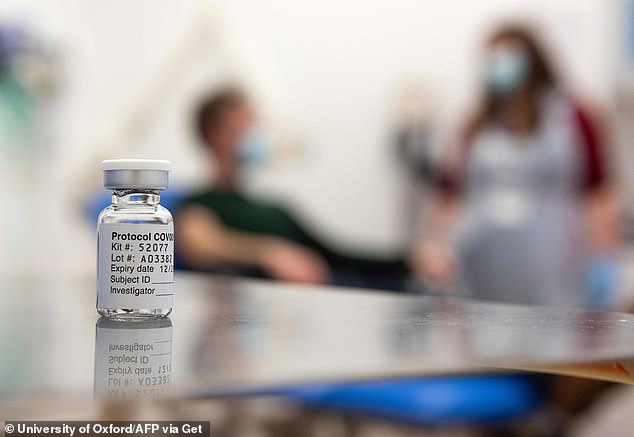People in the UK could start actually receiving vaccines against coronavirus by December 9, according to a local health boss.
The NHS in Nottingham is gearing up to start giving people jabs in less than two weeks’ time if one is given the green light by the drugs regulator.
None have yet been approved for use on the public but the MHRA watchdog is already assessing one made by Pfizer and will start considering candidates made by AstraZeneca and Moderna in the coming weeks.
Ministers had wanted the country to be ready to go by December 1 so that as many people as possible could be vaccinated before the New Year.
But with a licence still pending the chances are slim that people will actually be invited to a clinic within the next five days – although the UK may be on course to be the first country in the world to start vaccinating.
Care home residents and staff will be first in line for a vaccine because the illness is most deadly for the elderly, and the Army is set to be drafted in to run the mammoth effort.
At a council meeting in Nottinghamshire this week one of the area’s top health chiefs said: ‘We would aim to go live, we believe, by Wednesday December 9, should a vaccine be available,’ Nottinghamshire Live reported.
Vaccines could be the only way to stop the coronavirus and the hopes of lifting the UK – and the world – out of a seemingly endless cycle of lockdowns and social distancing hinge on jabs turning out to be successful and people volunteering to have them.
No vaccines have been given a licence for use on members of the public yet, but the UK’s drugs watchdog is assessing one made by Pfizer and could decide within days (Pictured: A vial of a vaccine made by AstraZeneca, which is also on track to be approved by the year end)
The timescale for vaccinations was laid out by the executive incident director at Nottingham and Nottinghamshire Clinical Commissioning Group (CCG), Sarah Carter.
The CCG directs all local NHS services in the area and said volunteers and extra staff were already being signed up to help deliver vaccines.
Ms Carter said: ‘We are aiming to have everything in place by Tuesday December 1, as per the national steer, and we would aim to go live, we believe, by Wednesday December 9, and the whole system is poised to move this forward.’
She added: ‘We’ve been working to prepare to deliver what will be, without doubt, the most unprecedented scale of vaccination programme that we’ve experienced.’
The Department of Health has not confirmed a national time frame for possible vaccinations if a jab is approved by the MHRA.
It said the programme was going as quickly as possible while following ‘robust standards’ and a spokesperson said: ‘We will publish further details on our deployment plans in due course.’
Health Secretary Matt Hancock called on the NHS to be ready for a December 1 start but the programme can’t start until the regulator, full name the Medicines and Healthcare products Regulatory Agency, decides a vaccine is safe enough and good enough to give to the public.
This rigorous scientific process started months ago and is expected to finish in the coming days or weeks.
Signs so far have looked promising for Pfizer and BioNTech’s vaccine candidate, after clinical trials showed it offered 95 per cent protection against Covid-19 and didn’t cause any major side effects.
A Government source reportedly told The Sun that Britain has a 50/50 chance of becoming the first country to get a Covid vaccine and that it could happen as soon as next week.
‘It’s looking pretty close and we could get a decision as early as next week,’ the unnamed source said.
‘If so, there’s a 50/50 chance we could be the first country in the world to approve a vaccine for roll out.’
If vaccines do get approved on the run-in the Christmas, Britain could get enough doses to vaccinate 10million people or more before the end of 2020.
This would mean the most vulnerable people in society could be protected from Covid-19 as soon as February – the jabs in trials require two doses taken a month apart.
Mr Hancock said this month: ‘We do not yet now whether or when a vaccine is approved, but I have tasked the NHS with being ready from any date from the 1st of December.’
And speaking in a meeting with Parliament’s Health and Social Care committee last week, Mr Hancock was optimistic that a vaccine could get the country back to normal within months.
‘After Easter, we think we will be getting back to normal,’ he said.
‘Now, there are some things that are “no regrets”, right? Washing your hands more and some parts of social distancing are no-regrets things that, I think, will become commonplace.
‘But those damaging social distancing interventions that have downsized, whether economic or social downsides in terms of our well-being, I should hope that we can lift those after Easter if these two vaccines are approved by the regulator, which of course is an independent decision for the MHRA.’
